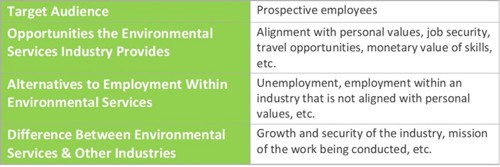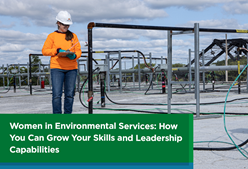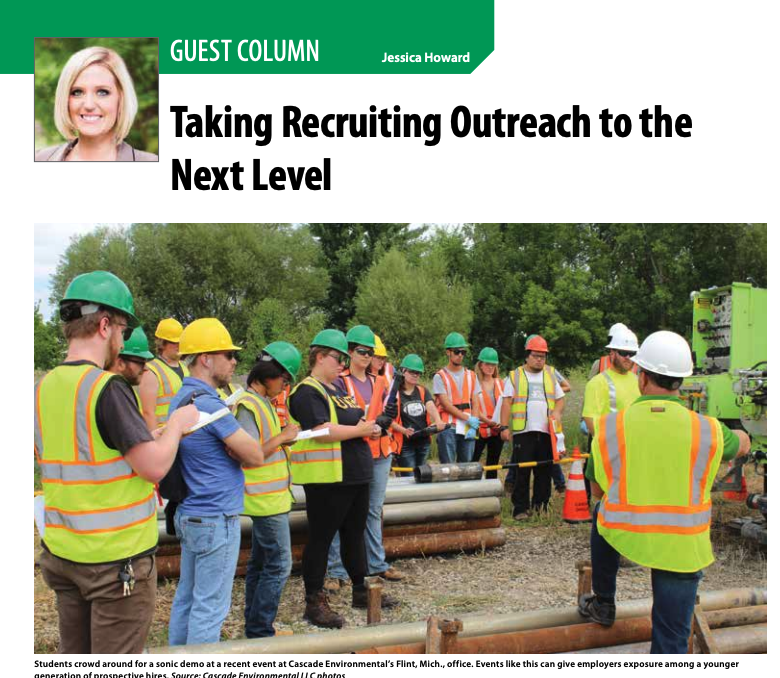3 Steps to Using Value Propositions to Build & Strengthen the Field Services Workforce
By: Jessica AlexanderAs many of us already know, environmental field services companies aren’t competing against one another for talent as much as they’re competing with other industries that require similar skills and work ethics. It’s a competitive recruiting landscape, which is why it’s crucial for anyone in a recruiting or hiring role to understand that their job is not to sell candidates only on their company, but to persuade them to build a career in our industry.
One of the most effective tools to accomplish that is a value proposition. In this post, I’ll cover three steps to using value propositions to attract people to environmental services jobs.
DEVELOPING VALUE PROPOSITIONS
Value propositions serve as a glimpse into what our industry can offer to someone considering joining it. In other words, what value will someone receive or experience in return for his or her work? Before developing value propositions, you should be able to identify the following:
- The target audience
- The opportunity your part of the industry and your company can provide
- The possible alternatives to employment with the industry or your company
- The primary differentiator between our industry and others

Example of value propositions for recruiting people to build careers in environmental services.
BUILDING THE PITCH
Keep in mind that close collaboration with organizational leaders and operational managers can provide significant insight into the above factors. Once you’ve brainstormed and identified these four focus areas, you can begin drafting “the pitch.” The pitch should be thorough and explicitly state how the target audience will benefit from employment within our industry (and of course, your company).
For example:
Cascade provides career-minded individuals the opportunity to grow professionally in a stable organization with one of the most financially strong and competitive reputations in the industry. Our employees not only receive competitive wages and benefits, but also have the opportunity to participate in a wide range of projects and initiatives that directly impact our communities and environment.
As you can see, the above statement clearly states how potential employees benefit from joining our industry and organization, and includes benefits that encompass both monetary and non-monetary incentives.
USING VALUE PROPOSITIONS
Once you’ve collaborated with organizational leaders and developed value propositions that accurately reflect career opportunities in the environmental services industry, it’s important to share these with those who need them most. Anyone involved in candidate outreach or interviewing should not only have access to the value propositions, but should be trained on how to use them as a core selling resource.
As we work to attract a larger, more diverse, and often younger generation of field services professionals, we must continue to reevaluate what makes this a good industry to work in and tailor our messages accordingly.
Want to learn more about careers at Cascade? Reach out to Talent Acquisition Manager, Jessica Alexander, at [email protected] or apply today at www.cascade-env.com/careers!






